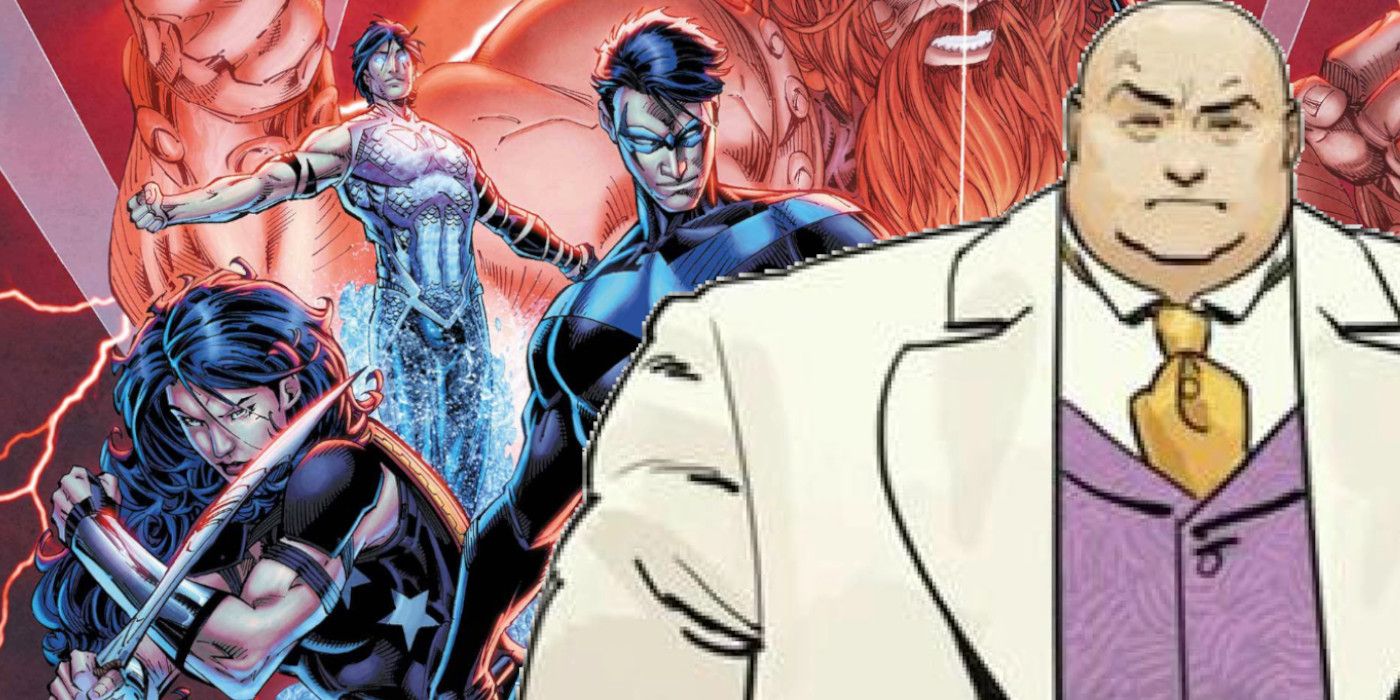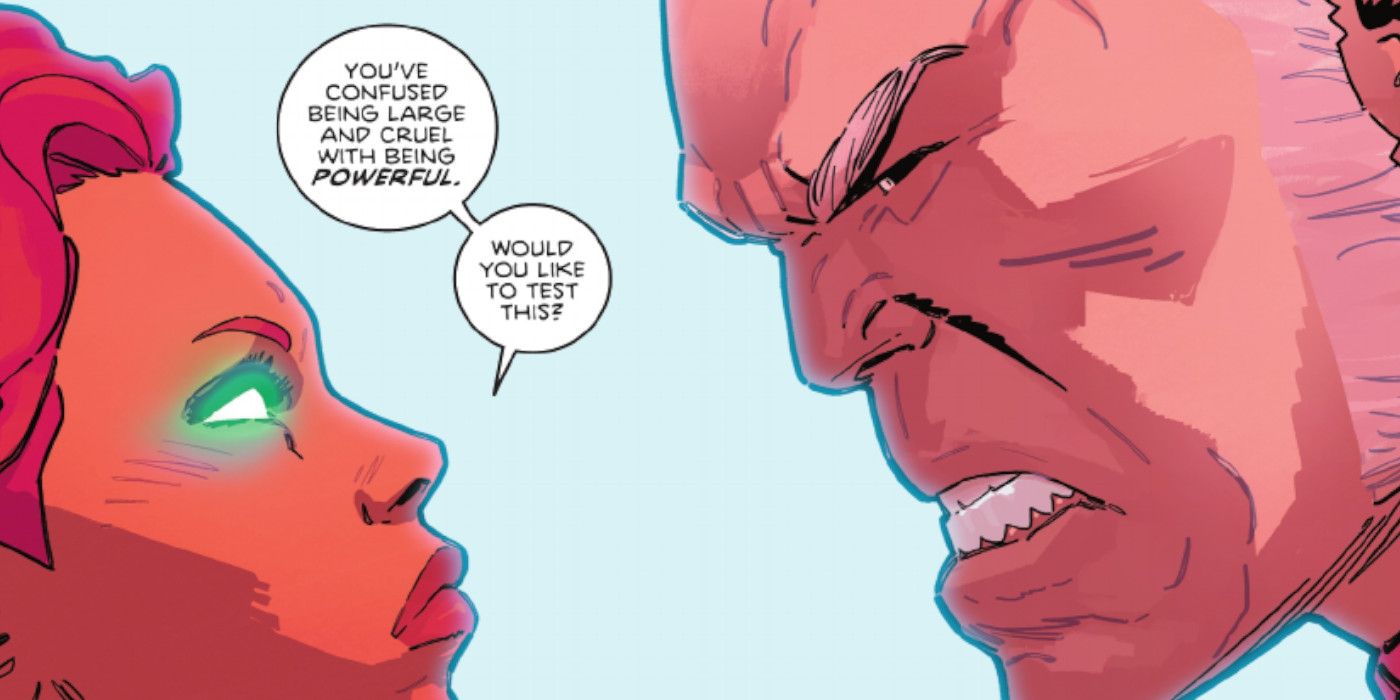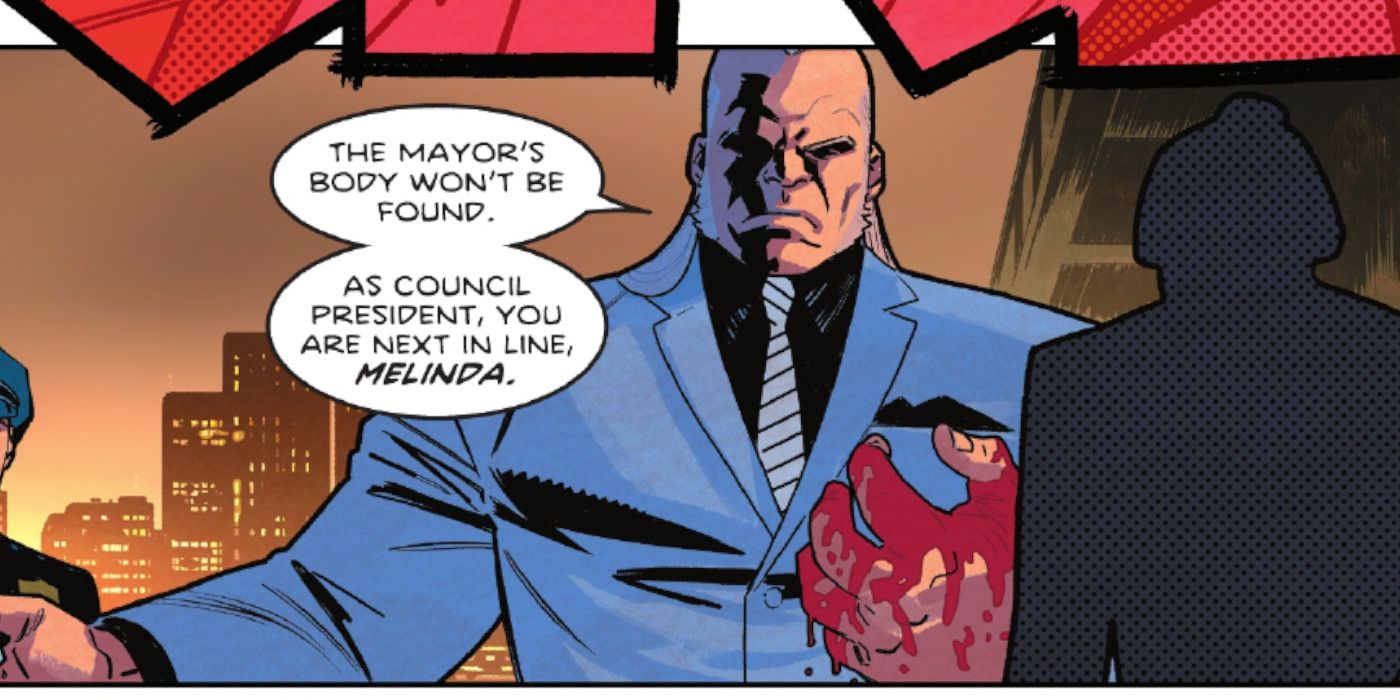Nightwing #88 (by Tom Taylor, Bruno Redondo, Adriano Lucas, and Wes Abbott) sees the former boy wonder reunited with the Titans, as they protected him from another attempt on Dick Grayson’s life from his arch-nemesis, Blockbuster. After they thwart his assassination attempt, The Titans not only intimidate Blockbuster but challenge his notion of “power”, which wields an interesting question over what power a crime boss needs to survive in these universes.
This exchange between Starfire and Blockbuster raises an interesting point about how difficult it is to maintain a criminal empire in a world with costumed vigilantes and super-powered Gods. Given that organized crime is already a precarious profession with risk factors like being killed or facing a lifetime in prison are only amplified when said crime boss lives in a world where that can be thwarted by a superhero or rival supervillain. This means that gangsters in these universes need to be smarter and more power-grabbing than they are in the real world to get by.
With the bounty of 10 million dollars still placed on Dick Grayson’s head, Blockbuster hired the assassins Gunhawk and Gunbunny to kill Bludhaven’s new billionaire philanthropist. Unbeknownst to the hulking crime lord, Dick Grayson’s alter-ego Nightwing has friends in high places, as Oracle calls on the Titans to watch over him for his press conference announcing the opening of the Alfred Pennyworth Foundation. Naturally, Gunhawk and Gunbunny are thwarted by the Titans and Nightwing, as the team then confronts Blockbuster’s office tower, as he is stared down by Starfire. The Titans were later transported to Blockbuster’s office tower, as they tell him that Dick Grayson is under their protection. Blockbuster told them that they are trespassing on his property, to which Starfire replied that the crime lord had “confused being large and cruel with being powerful”.
This shows that the only way that crime bosses can survive in these universes is by wielding two different kinds of power: money and political influence. Real-life mafia families, drug cartels, and bosses like Pablo Escobar and El Chapo had managed to amass large chunks of wealth which allowed them to hire thousands of foot soldiers and enforcers for their operations, whilst also knowing how to exploit corruption within the police force and local and national governments. Crime bosses in comic books need to do this but on a grander scale in order for their criminal empires to thrive.
Examples of this include hiring super-powered criminals and assassins to enforce or carry out their dirty work and take out their various opponents. They also need the means to hold political power over the police force and local government. Blockbuster himself does this when he crushes the head of the former Mayor of Bludhaven (who is later replaced by Melinda Zucco), making it known that he is the one in charge of the city. However, sometimes this isn’t enough and these crime lords have to wield that political capital themselves whilst maintaining a squeaky clean public image. Examples of these include Lex Luthor becoming President of the United States and Wilson Fisk using his status as Mayor of New York to outlaw superheroes in the city.
Wielding more abstract concepts of power can be beneficial to this type of villain and can sometimes do more damage to their heroes than any superpower ever could. Perhaps the best-known example of this is when the Kingpin systematically destroys Daredevil’s life when learning his secret identity, and uses the full force of his political connections and vast wealth to drive Matt Murdoch into a nervous breakdown. Blockbuster himself would later use similar tactics when he discovered Nightwing’s secret identity and wear down the hero to the brink of insanity.
While crime bosses like the Kingpin and Blockbuster can amass power and wealth to keep their crime organizations afloat, these can only exist when superheroes follow certain “rules”. When Starfire stares him down, it can’t help but remind Desmond that the superheroes and villains in the world are the ones with the real power. The no-killing rule and non-interventionist policy of mainstream superheroes don’t allow them to eviscerate such criminal operations in a heartbeat, which happens in tales where heroes go rogue and embrace authoritarianism. Stories like Injustice and Alan Moore’s Miracleman see god-like heroes who install peace and eradicate war and crime when they decide to meddle in the governance of human affairs. Crime bosses are lucky for the moral compasses of superheroes, as the second they decide to take over the planet, their entire operations would disappear overnight, leaving them utterly powerless.



